When you consider what is most likely to harm your pet, you no doubt think about cars, wildlife, and disease. What about everyday household items? Yes, several items you use in your home every day pose a potential risk to your pet. Every pet owner should be aware of the hidden dangers for pets in their homes.
Therefore, our Livingston Veterinary Hospital team unearths some unsafe household items to protect your pet.
Pet-toxic foods
Food toxicity is a frequent form of pet poisoning every year, because many pet owners are unaware of these edible risks. While people enjoy many foods, the same ones can cause gastrointestinal (GI) upset, organ damage, and other life-threatening signs in pets who eat them. Human foods you should never feed your pet include:
- Chocolate
- Grapes and raisins
- Onions, garlic, and leeks
- Caffeine
- Moldy cheese and food
- Macadamia nuts
- Raw bread dough
- Fruit pits
- Avocados
- Alcohol
High-fat foods are also dangerous for pets because they can trigger a painful, potentially life-threatening condition called pancreatitis. It’s best to feed your pet only pet-specific foods and dissuade your family and friends from sneaking treats off their plate to your four-legged friend.
Poisonous household plants
Many indoor and outdoor plants can be toxic to pets if ingested. Seemingly harmless plants can cause vomiting, diarrhea, or more severe reactions. Before bringing a new plant into your home, research its toxicity to ensure it’s pet-safe. The ASPCA’s guide to non-toxic and toxic plants is an excellent reference. A few of the many toxic plants that are often found in homes and yards include:
- Lilies, especially for cats
- Azaleas
- Yew
- Sago palms
- Tulip and narcissus bulbs
- Oleanders
- Caster bean
- Kalanchoe
- Autumn crocus
Medications and your pet
Human medications, both prescription and over-the-counter, can be hazardous to pets if ingested. Painkillers, antidepressants, ADHD medications, and cold and flu medicines are the most common culprits. Many pets cannot resist a small pill or capsule, so always store medications in secure cabinets or drawers inaccessible to pets. Be aware when you take pills, so you don’t drop them on the floor or leave them on bedside tables where your pet can snatch them. In addition, never give your pet medication without consulting your veterinarian.
Pet-harmful cleaning products
You may take pride in a clean home, but did you know several household cleaners can harm your pet? Cleaning products that contain chemicals, such as ammonia, bleach, phthalates, formaldehyde, and glycol ethers, are dangerous for pets who ingest them or inhale the fumes. Take heed—move your pet to another area of your home when you use these products and do not let your pet walk across wet floors until the floor is dry and the chemicals have dissipated.
Lawn and garden chemicals unsafe for pets
It’s incredible—albeit frightening—to consider how many seemingly innocuous products we use around the home that can harm our pets. Lawn and garden additives may keep your outdoors beautiful, but they put your pet at great risk. Pesticides, herbicides, and fertilizers all contain toxic chemicals. So, keep your pet off recently treated lawns and gardens, waiting several hours, or according to the product directions, before allowing them to roam or roll across the lawn, and do not let them chew the grass or plants. Err on the side of caution if you do not know whether lawns have been sprayed with chemicals recently.
Ingestion of small objects
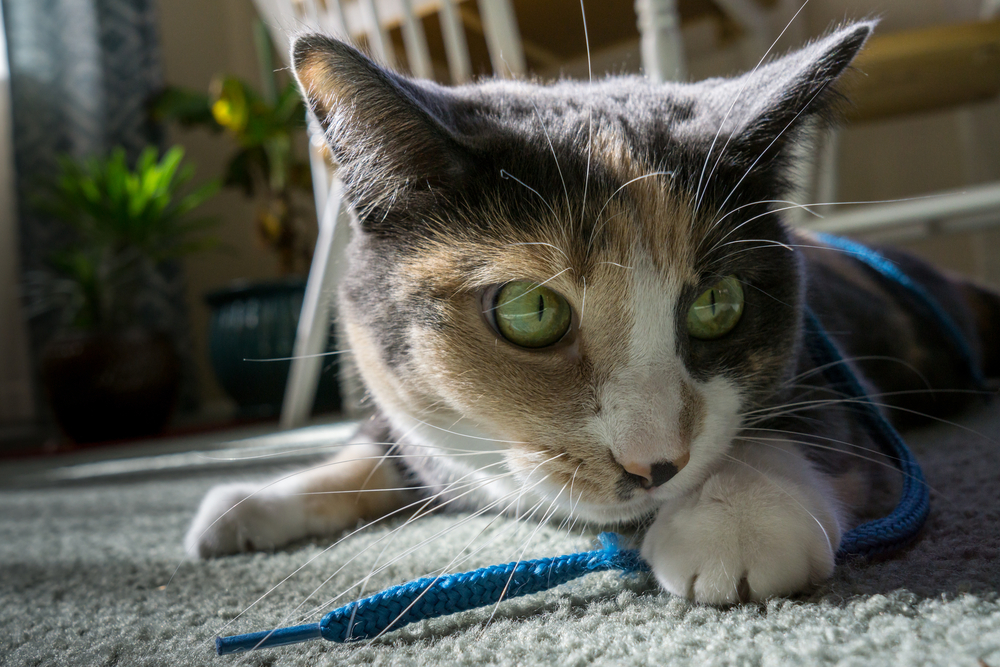
Your inquisitive cat likely often bats errant objects around the floor or your curious pup may investigate random items. Pets are endlessly curious, so you must keep small objects off the floor and ensure they aren’t accessible to your pet. Intestinal blockages, injuries, and choking can be unfortunate consequences for a pet who ingests small objects, such as:
- Batteries
- Coins
- Rubber bands
- Hair ties
- Sewing needles
- Keys
- Toys
- Plastic bags
- Shoe strings
- Ribbon
A pet owner’s major responsibility is creating a safe environment for their pet. Protect your pet by being aware of potential hazards and taking preventive measures while allowing them to be curious and playful.
However, if your curious pet still manages to swallow a dangerous household substance, call our Livingston Veterinary Hospital team and we will promptly provide the care they need.
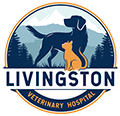

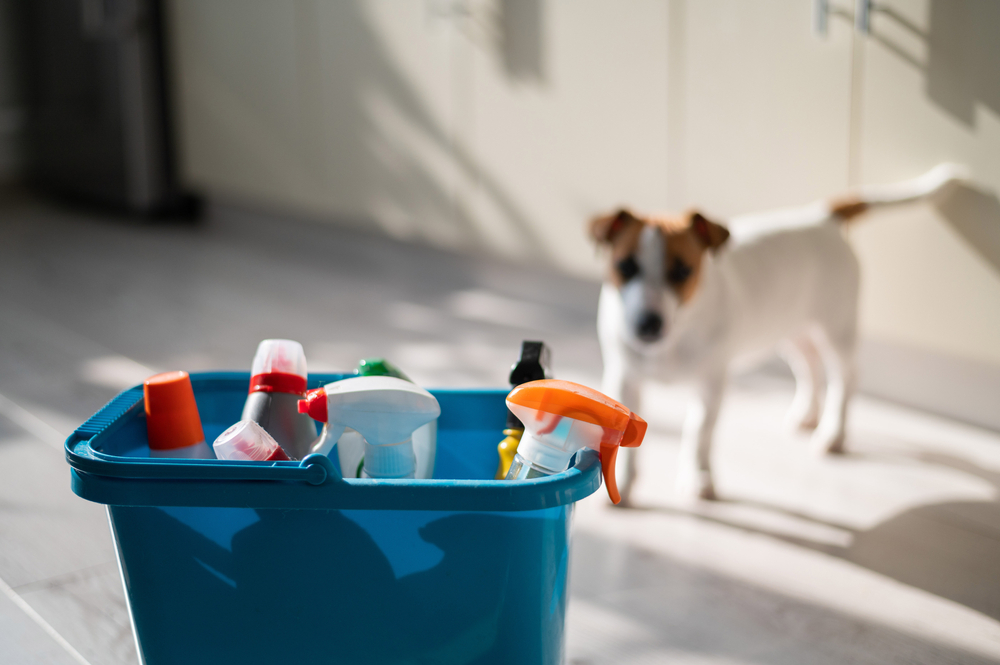
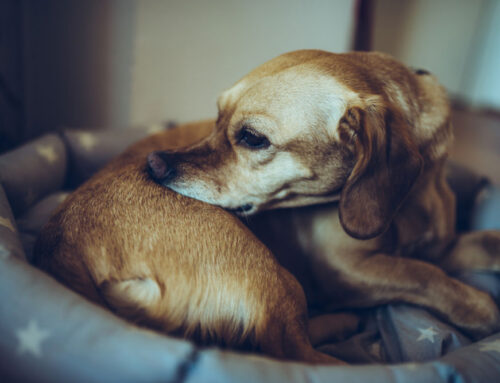
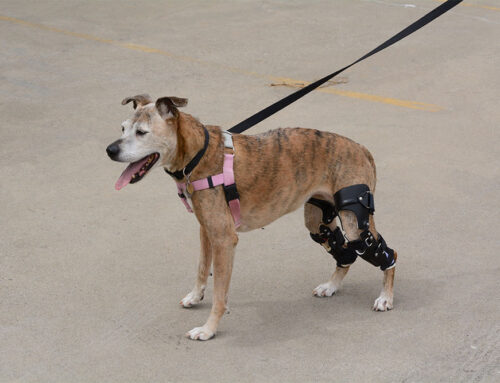


Leave A Comment